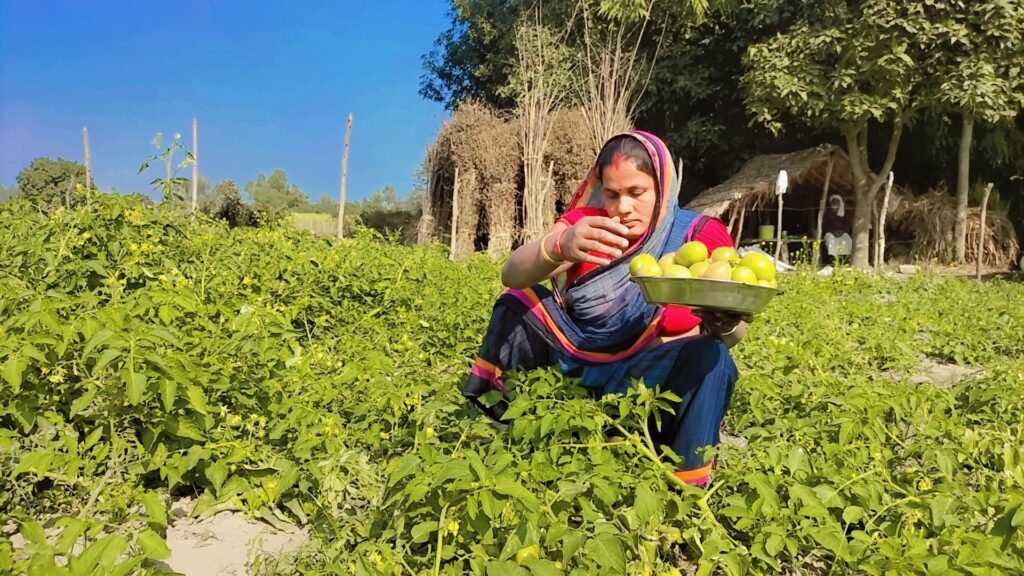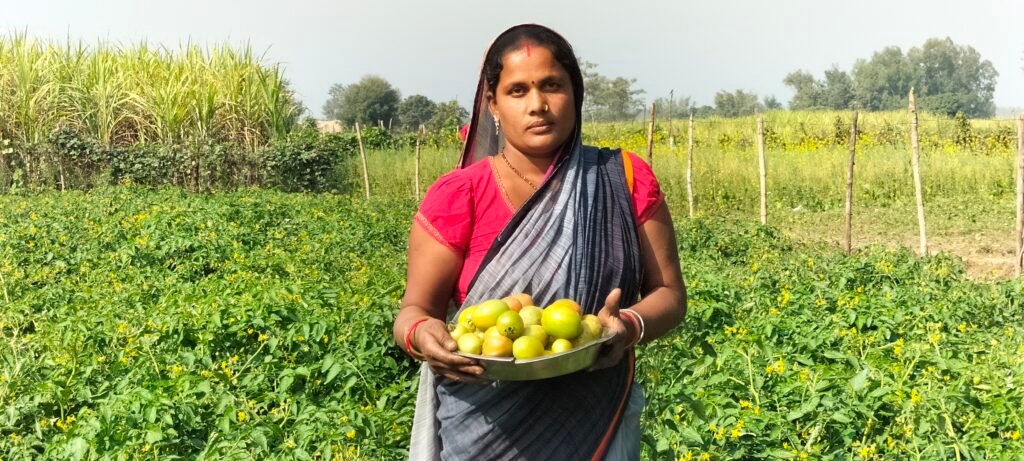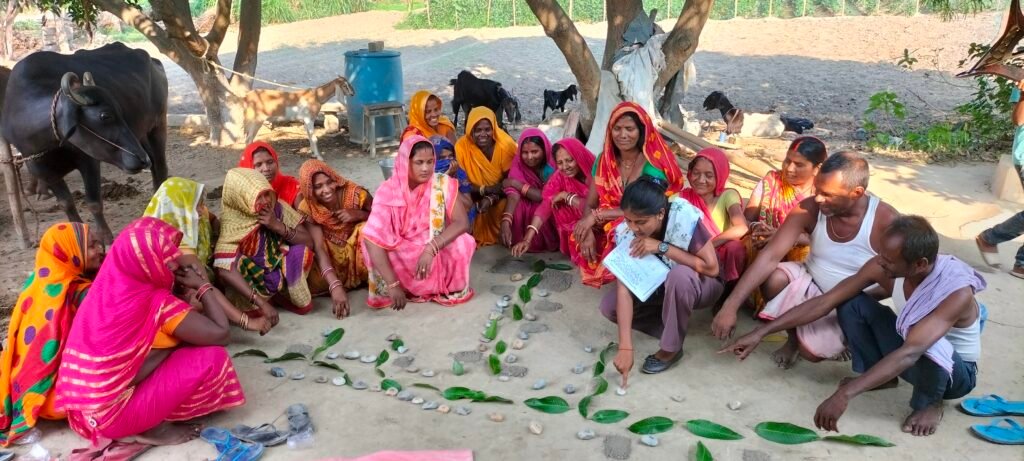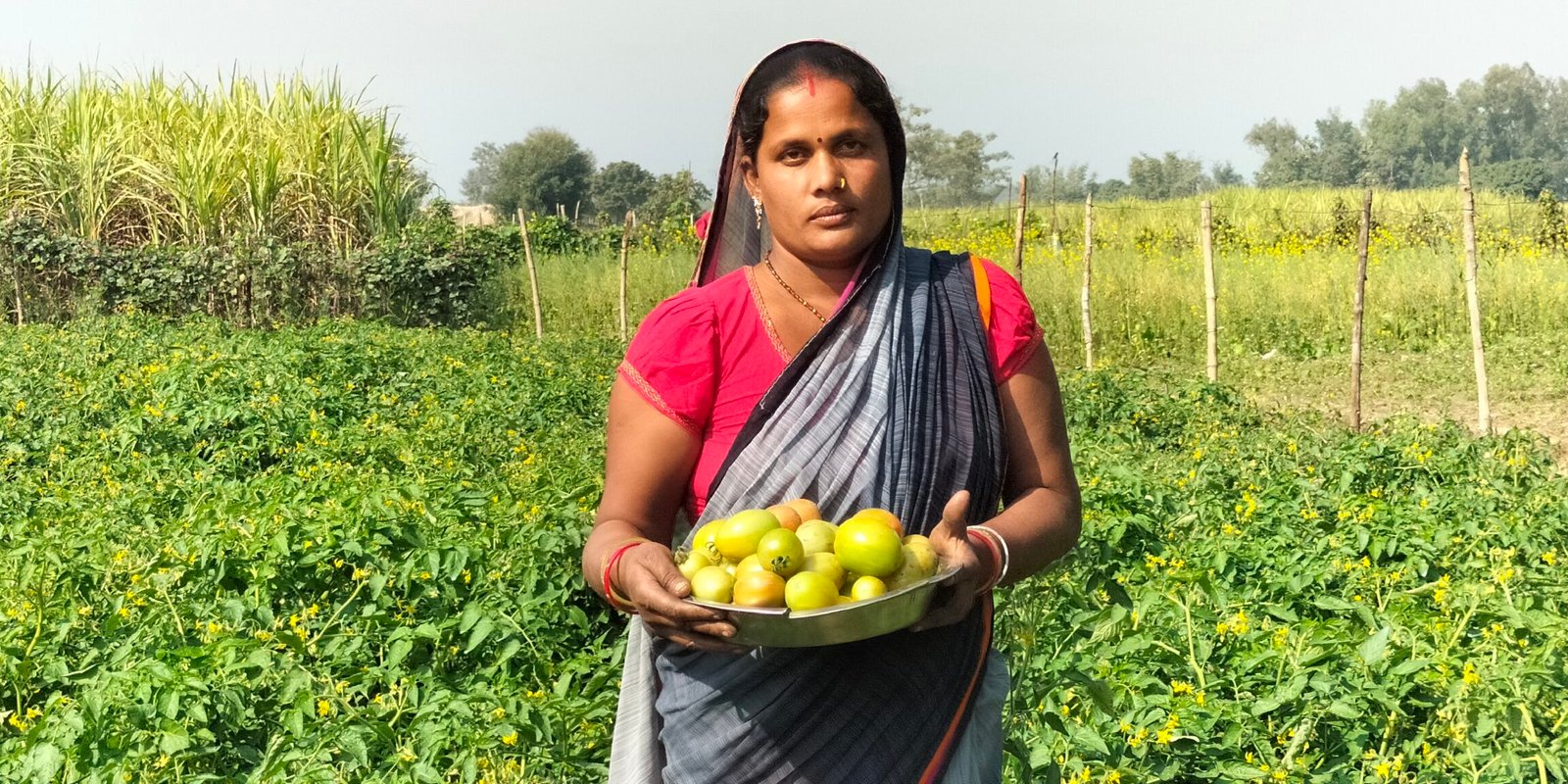Dilmohini Sah, 29, resides in Laxminiya, Gaushala Municipality Ward No. 12 in Mahottari. Like many others in the village, her family relied heavily on family farming, that offered little room for growth or prosperity. Seeking a better life for the family, Dilmohini’s husband, Ram Jatan Sah, left for Saudi Arabia for employment. However, their hopes for a brighter future were short-lived. Ram Jatan fell ill and was forced to return home after three months, leaving them financially and emotionally drained.
“Those were the darkest days of my life,” recalls Dilmohini, “I often wondered how I would provide food for my family.”

However, a glimmer of hope emerged when Dilmohini became involved in the Climate Resilient Initiative (CRI).
Through a series of engaging trainings/orientations, such as climate-smart agricultural technological practices, preparing biofertilizers using local herbs, compost, off-seasonal vegetable cultivation, and micro-enterprise business development plan. Armed with this newfound knowledge, Dilmohini embarked on a journey of transformation. She expanded her cultivation area: 0.60 hectares of land, including 0.20 lease land; adopting the sustainable practices she had learned.
Dilmohini previously relied on chemical fertilizers, believing they were the key to increased crop yields. However, through the CRI program, she became aware of the harmful effects these chemicals had on her soil and crops. The program introduced her to climate-smart agricultural practices and techniques; she adopted mulching and Integrated Pest Management (IPM) techniques.
As a result, within only the last six months, Dilmohini earned over Rs. 1,50,000, and the vegetables are still yielding. Currently, she has cultivated tomatoes and eggplants on 0.03 hectares each and local beans on 0.20 hectares.
“The training sessions were an exposure,” she explains. “I learned about composting, organic and bio-fertilizers, and how to grow off-season vegetables.”

More importantly, the CRI program instilled confidence in Dilmohini through the Learning Centre. She became a regular participant in the learning centre established by the program,and actively participated in discussions.
“I used to be shy and hesitant to speak in public” she admits, “But the program encouraged me to participate in group discussions and share my experiences. Now, I can confidently express my views and share my knowledge with others.”

Dilmohini has not only improved her own life but also inspired others in her community to embrace sustainable farming practices at the same time empowered. “I believe that change is only possible through hard work,” she emphasizes, “But with the right support and knowledge, as been provided by the CRI program, we can overcome any challenge and build a brighter future for ourselves and our families.”
-Story and Photo Credit: Rani Sah







